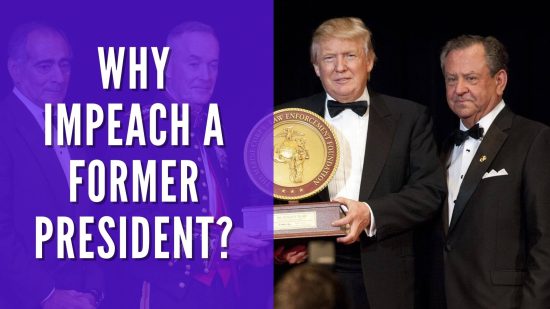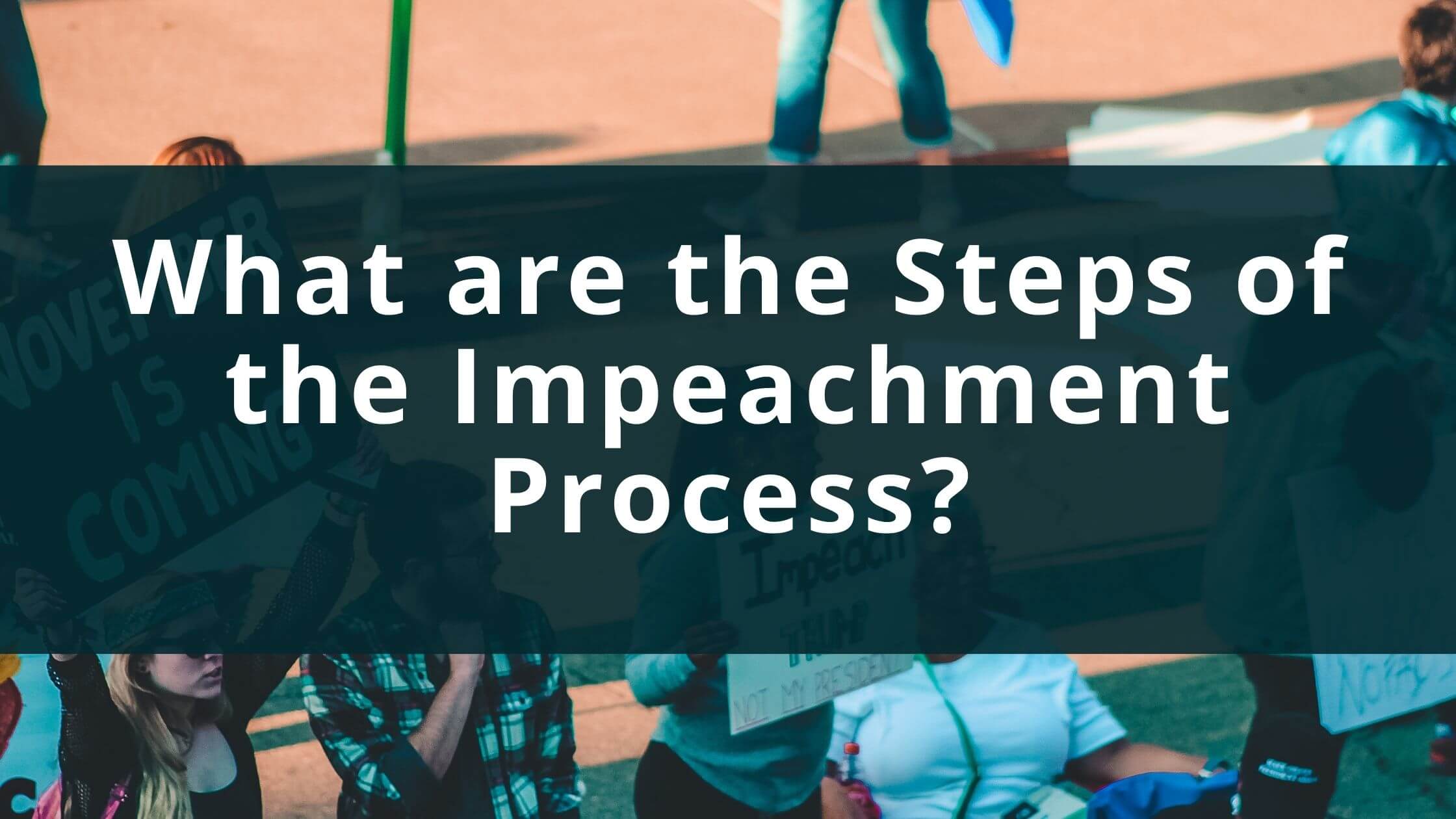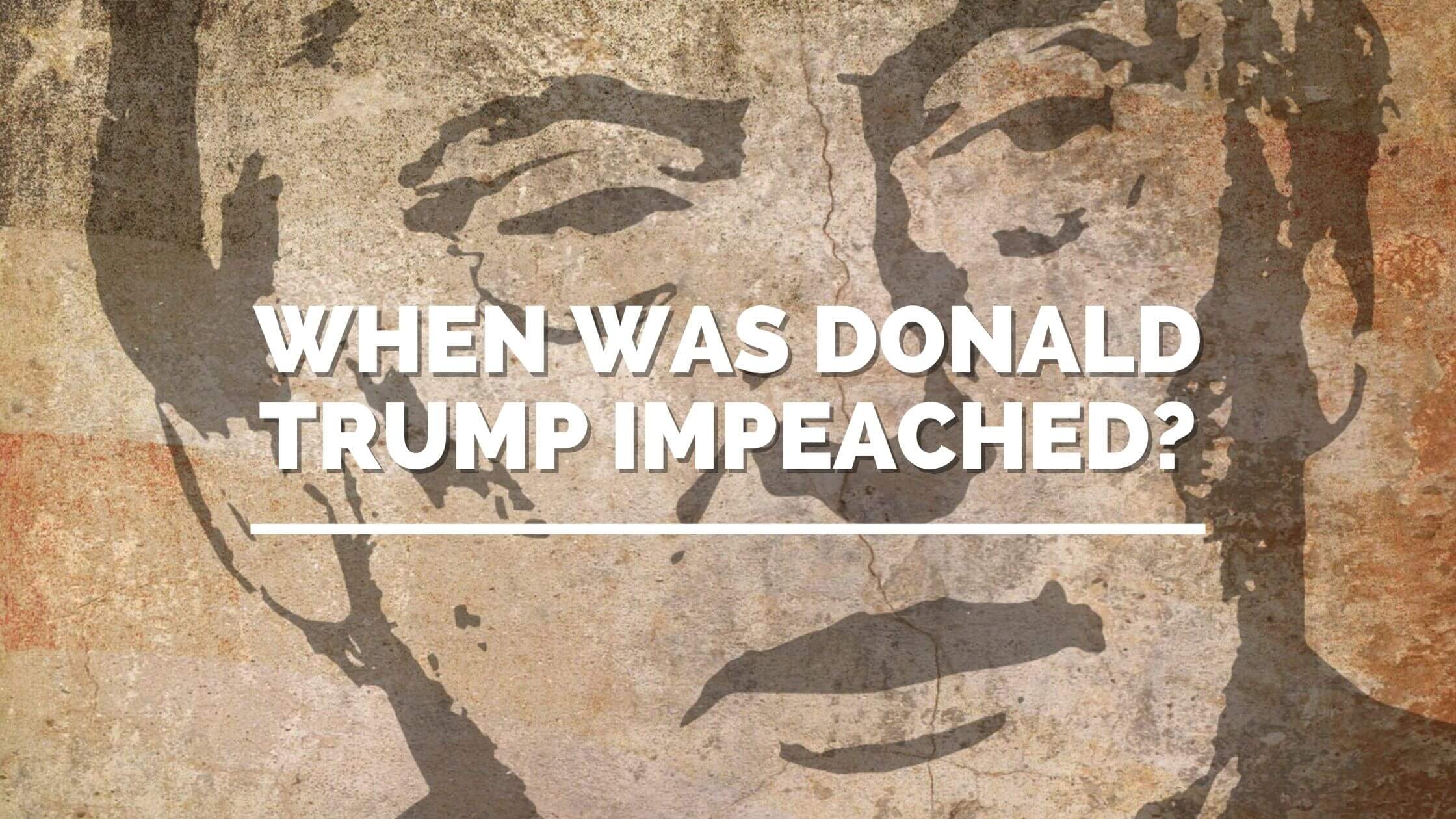Table of Contents
ToggleSources
- https://www.brookings.edu/blog/fixgov/2021/01/11/can-a-former-president-be-impeached/
This Brookings Institution article provides an authoritative analysis on the constitutionality of impeaching a former president, discussing historical precedents and legal arguments, which directly supports the blog post's discussion on the topic. - https://www.law.cornell.edu/constitution/articleii#section4
The Cornell Law School's Legal Information Institute provides the exact text of Article II, Section 4 of the U.S. Constitution, which outlines the grounds for impeachment, making it a primary source for the blog post's claims about impeachment criteria. - https://www.congress.gov/resources/display/content/The+Federalist+Papers#TheFederalistPapers-67
The Federalist Papers, particularly No. 67, discuss the framers' intentions regarding impeachment, which is relevant to the blog post's exploration of what the Founding Fathers intended with impeachment. - https://www.nytimes.com/2021/02/09/us/politics/trump-impeachment-explained.html
This New York Times article explains the specifics of Donald Trump's second impeachment, including the arguments for and against impeaching a former president, which aligns with the blog post's discussion on Trump's impeachment. - https://www.heritage.org/constitution/articles/2/essays/95/impeachment
The Heritage Foundation's guide to the Constitution offers a detailed explanation of impeachment, including its purpose and process, which supports the blog post's description of impeachment as a corrective measure and its procedural details.
Key Points
- Impeachment is a mechanism to remove officials from public office, with removal being the primary punishment.
- Impeaching a former president can set them up for criminal prosecution by removing protections of their former office.
- Arguments for impeaching a former president include setting a precedent of accountability and preventing them from holding future office.
- Arguments against impeaching a former president include potential political division and it being seen as a political stunt.
- Impeachment is a legislative process, not judicial, and involves the House of Representatives bringing charges and the Senate conducting a trial.
- Impeachment has a different burden of proof compared to normal trials, with no clear standard defined.
- The president cannot pardon impeachment outcomes, making it a unique form of accountability.
- Impeachment can serve as a precursor to criminal prosecution by stripping former officials of protections.
- The Founding Fathers intended impeachment to apply to former officials, as debated during the Constitutional Convention.
- Impeachment of former President Donald Trump was aimed at accountability and enabling potential future legal actions.
Summary
Impeachment is a constitutional process to remove unfit officials from office, and while it doesn't impose criminal penalties, it can bar them from future office and pave the way for prosecution. Arguments for impeaching a former president include accountability and setting legal precedents, while critics argue it could be politically divisive or seen as punitive. The impeachment of Donald Trump after his term highlighted debates over its purpose—whether as a corrective measure or a step toward legal consequences for actions taken in office.
The whole idea of impeachment is the ability to remove an official from public office. If the impeachment passes, then that is the only punishment that stems from the impeachment.
So, why impeach a former president?
A past president can no longer lose the title of President as they are no longer president. However, it can set them up for criminal prosecution without the protection of their office.
| Arguments For Impeaching A Former President | Arguments Against Impeaching A Former President |
|---|---|
| 1. Sets a precedent that no one is above the law, even former Presidents. | 1. The Constitution does not explicitly state that impeachment applies only to sitting Presidents. |
| 2. Provides accountability for actions taken while in office. | 2. Impeaching a former President could be seen as a political stunt and a waste of time and resources. |
| 3. Prevents the individual from holding public office again. | 3. Impeachment of a former President could further divide the country and make it harder for elected officials to work together. |
| 4. Sends a message to future Presidents that they will be held responsible for their actions. | 4. Impeachment of a former President could be seen as an attempt to punish political opponents or settle political scores. |
| 5. Provides a sense of closure for those who feel wronged by the actions of the former President. | 5. Impeachment of a former President could be seen as an attack on free speech and the right to hold unpopular opinions. |
Impeachment of Former President Donald Trump
Former United States President Donald Trump was impeached twice. The first impeachment occurred while President Trump was in office.
The second Senate impeachment trial began after his successor, President Joe Biden, entered the White House.
The timing of this trial caused a big stir, both from Donald Trump’s advocates in the Republican Party in Congress and from observers on social media.
Why impeach an outgoing president rather than an alternate route to seek justice?
Let’s dive into what impeachment is, how it’s different from normal trials, and why most legal scholars think impeaching a former president is well within the bounds of the law.
What Is Impeachment?
Impeachment is a safety measure that allows the government to remove corrupt, treasonous, or otherwise unfit federal officers from their positions in government.

Article 2 and Impeachment
Article II of the United States Constitution specifies that the President, Vice President, and all Civil Officers of the federal government may be impeached for “treason, bribery, or other high crimes and misdemeanors.”
High crimes and misdemeanors are not defined. This gives the legislative branch a great deal of latitude to decide whom to impeach and for what conduct.
Impeachment as a Corrective Measure
Impeachment is primarily a corrective measure. In other words, an impeachment mostly removes the offending civil officer from office. It does not punish them with jail time, fines, or other measures.
Process of Impeachment
The process of impeaching a federal officer begins in the House of Representatives. The House of Representatives must bring charges against an official.
Bringing these charges requires a simple majority vote. If this vote passes, a Senate trial will happen.
The House of Representatives appoints impeachment managers who attempt to convince the United States Senate that the individual in question has committed an impeachable offense.
To convict on any specific charge, two-thirds of present senators must vote to find the accused individual guilty of that charge.
Why Is Impeachment Different From a Normal Trial?
Legislative, not judicial
There are several differences between impeaching a president and charging someone with a crime.
For instance, the House of Representatives brings charges in an impeachment trial, not a prosecutor.
Prosecutors are government employees working for the Justice Department’s executive branch. This is opposed to the House of Representatives, a democratically elected branch of government that’s accountable only to the people.

Get Smarter on US News, History, and the Constitution
Join the thousands of fellow patriots who rely on our 5-minute newsletter to stay informed on the key events and trends that shaped our nation's past and continue to shape its present.

In other words, federal prosecutors work for the current president. A prosecutor bringing charges against a former president or an outgoing president might be viewed as the new president using their political influence to punish a rival.
Though the House of Representatives might belong to a different party than the former president, the fact that it’s a large body that answers directly to the people helps make impeaching a former president seem less like an act of political revenge.
Impeachment is Unpardonable
The president cannot use their pardon powers against impeachment. The president has the authority to pardon criminals by reducing or commuting their sentences. However, the Constitution is quite explicit that this power is ineffective against the act of impeachment.
The impeachment process removes a person from public office (and possibly bars them from holding office again), which is not something the president can pardon.
A different burden of proof
Using impeachment power is rare, and it’s not defined as clearly as you might think.
While each article of impeachment requires a guilty vote from two-thirds of senators present to convict the impeached person, there’s no clear burden of proof. Instead, senators can vote “guilty” or “not guilty” based on any standard they see fit.

In normal trials, the standard of proof is quite well defined. In a criminal trial in front of a court, a defendant would have to be proved guilty beyond a reasonable doubt, which means that whoever decides the case must be about 95% certain that the individual in question is guilty.
In a civil trial, a defendant must be guilty by a preponderance of the evidence, which means that whoever determined the case’s outcome must be about 51% certain that the individual is guilty.
Different remedies by the Judicial Branch
Courts are limited in their powers. For example, a trial court might send a former president to jail, fine them, or mandate that they perform community service.
In most cases, a trial court cannot remove that former president from public office, nor can it prevent that former president from holding future office.
Impeachment as a Punishment
Impeachment ONLY removes someone from office. Removal from office is the primary remedy offered by impeachment. Should the impeachment be successful, the United States Senate may undertake a separate vote to bar the impeached individual from holding federal office.
The Senate has held that this secondary vote only requires a simple majority. Therefore, the Senate may not impose jail time, fines, or other penalties. However, if the goal is to punish a former president for wrongs committed while in office, impeachment must be supplemented by normal criminal prosecution.
Impeaching To Prosecute
The Justice Department generally does not prosecute former presidents. Part of the motivation behind the second impeachment of President Trump was to nullify this tradition and make the legal prosecution of a past president more viable.
With no impeachment, the president could claim that the president’s office shielded his actions in several ways. Had the Senate impeachment trial been successful, it would be much easier for prosecutors to overcome this defense in court, as the Senate would have held that the president’s actions were unlawful.
In this sense, impeachment often serves as the first hit in a one-two punch combination against public officials who have committed crimes.
Even after they’ve left office, impeachment helps strip them of the protection of their former offices and clears prosecutors to begin building cases against them and bringing about justice.
What did the Founding Fathers Want?
President Trump’s second impeachment caused many legal scholars to delve into the constitutionality of impeaching former officials. As it turns out, impeaching former officials weren’t just intended by the Founding Fathers, but it was the normal way of impeaching officials at the time.
In fact, there was a great deal of debate at the Constitutional Convention about whether sitting presidents and former presidents should be impeachable or if impeachment should be limited to only former presidents.
This suggests that the framers of the Constitution created impeachment as the correct vehicle for lawmakers to use against former presidents who committed impeachable offenses near the end of their terms.
Why Impeach a Former President? Quiz
Frequently Asked Questions
What is the purpose of impeaching a former president?
What are some arguments for impeaching a former president?
What are some arguments against impeaching a former president?
How does the impeachment process differ from a normal trial?
Why was former President Donald Trump impeached after leaving office?
How useful was this post?
Click on a star to rate it!
Average rating / 5. Vote count:
No votes so far! Be the first to rate this post.
We are sorry that this post was not useful for you!
Let us improve this post!
Tell us how we can improve this post?






